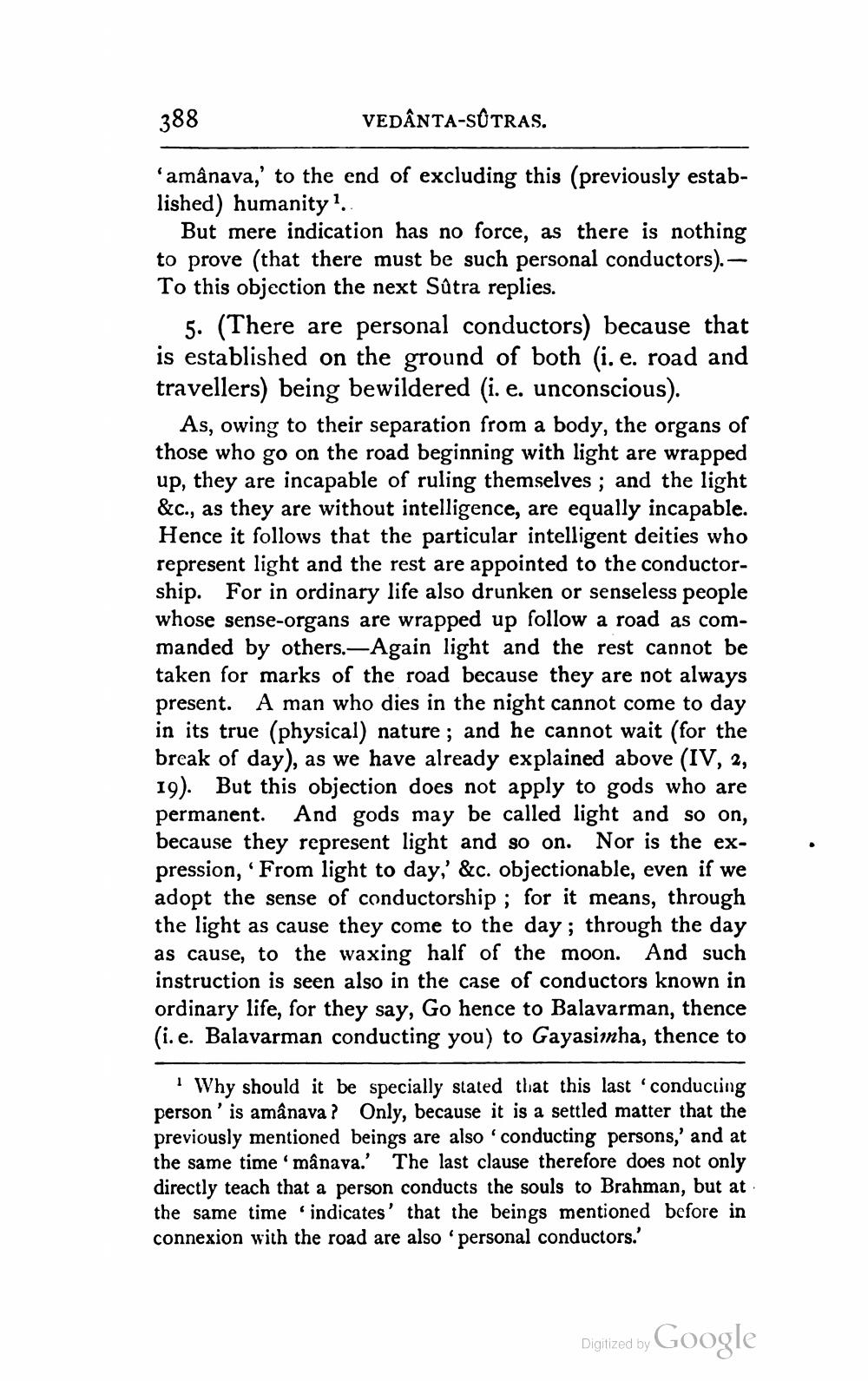________________
388
VEDÂNTA-SÛTRAS.
'amânava,' to the end of excluding this (previously established) humanity 1.
But mere indication has no force, as there is nothing to prove that there must be such personal conductors). — To this objection the next Satra replies.
5. (There are personal conductors) because that is established on the ground of both (i.e. road and travellers) being bewildered (i. e. unconscious).
As, owing to their separation from a body, the organs of those who go on the road beginning with light are wrapped up, they are incapable of ruling themselves; and the light &c., as they are without intelligence, are equally incapable. Hence it follows that the particular intelligent deities who represent light and the rest are appointed to the conductorship. For in ordinary life also drunken or senseless people whose sense-organs are wrapped up follow a road as commanded by others.—Again light and the rest cannot be taken for marks of the road because they are not always present. A man who dies in the night cannot come to day in its true (physical) nature; and he cannot wait (for the break of day), as we have already explained above (IV, 2, 19). But this objection does not apply to gods who are permanent. And gods may be called light and so on, because they represent light and so on. Nor is the expression, 'From light to day,' &c. objectionable, even if we adopt the sense of conductorship; for it means, through the light as cause they come to the day; through the day as cause, to the waxing half of the moon. And such instruction is seen also in the case of conductors known in ordinary life, for they say, Go hence to Balavarman, thence (i.e. Balavarman conducting you) to Gayasimha, thence to
1 Why should it be specially stated that this last 'conducting person' is amânava? Only, because it is a settled matter that the previously mentioned beings are also conducting persons,' and at the same time mânava. The last clause therefore does not only directly teach that a person conducts the souls to Brahman, but at the same time indicates that the beings mentioned before in connexion with the road are also personal conductors.'
Digitized by
Digized by Google




